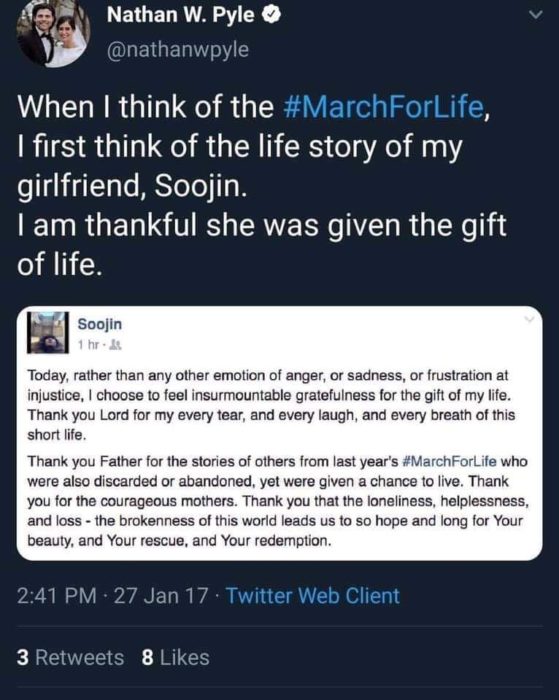‘If Only Christians Made Great Art!’ Ignores Real-World Criticism
I like to advocate for Christian fiction. By name. By Christians, and for Christians.
And yes, I do this while recognizing that the label Christian fiction has a lot of silly definitions attached to it.1
But in response, some Christian-fiction-as-label critics offer some sentimentalist views of their own.
For example, I often hear an objection that goes something like this:
If only more Christians made great art! Then we could really influence the culture for the gospel.
That’s the best version of this objection. Lesser versions of it attach generalized riders like, Then more people would believe in Jesus, or Then we could do something about people’s nasty beliefs about Christians.2
I call these objections “sentimentalist” for at least two reasons:
- It ignores the existence of existing, excellent Christian-made fiction;
- It presumes the general goodness of popular culture “kingmakers,” who chase trends and agendas like any other human.
Exhibit A: ‘Strange Planet’ cartoonist Nathan W. Pyle.
If you have gone anywhere near social media, you’ve likely seen the comics of Nathan W. Pyle. Within the past month, he’s gotten hugely popular.
Who?
He’s the artist who makes those “Strange Planet” comics. They’re the ones that feature those little blue aliens, who practice basic human things and describe them with comically cumbersome big words.
As in, alien 1 says to another, about a salad, “YOU GATHERED LEAVES”.
Then alien 2 replies, “LEAFBUCKET! IT’S SOMETHING TO INGEST”.
These comics are whimsical, genuinely funny, well-done for their medium. They’re not “evangelistic.” And they’re not propaganda. They’re simple, accessible, and they speak to the basic human condition from a position that’s at once comfortable and challenging. Each four-paneled insight lets us laugh at ourselves but not in a mean-spirited way.
Well. Turns out Nathan W. Pyle could still himself be a threat-level-A alien menace.

For this crime, many of his fans are turning against him. They’re saying things like, “Damn. I really liked your comic, too. Shame on you.”
And, “oh yikes, the cute alien comics dude is anti abortion”.
The worst headline I’ve seen actually whimpered, “The internet’s favorite new comic strip ruined by old anti-abortion tweet.”
There’s more scuttlebutt about the web.3 But so far, from what I’ve seen, Pyle hasn’t been doxxed, blocked on Twitter, fired from jobs, or persecuted by human rights commissions in the nation of Canada or the state of Colorado.
This means: Christians should not be crying “persecution!” any more than Pyle’s critics should be crying “anti-woman!”
Also, I don’t here address the question of how Christians should respond to persecution. I’m not talking about whether Christians should grant any legitimate grievances along with the criticism we hear, or try to improve the church’s witness in the world.
That’s not my point.
Rather, I’m simply pointing out that any Christian artist, no matter the label or quality of art, will face criticism. Harsh criticism. They may even face persecution, if not now, then in the future. The loudest critics, because of their religious motivation, will only regret for a moment (if that) that they must now ignore excellently done art. After that, well, belay the art and all that. We’ve a Cause to support.
That’s enough of a caution to stop self-critical Christians from saying, “If only Christians made better art, then we could . . .”
“. . . Glorify God better?” That’s really the best way to finish the sentence.
But “. . . change the world? . . . impress non-believers? . . . improve the church’s witness? . . . get more people saved”?
Such statements are just as wishful-thinking as that sappy Christian novel where the main character finally gets saved and suddenly everything in her life becomes miraculously better.
- Definitions attached to Christian fiction include, but are not limited to: saccharine, shallow, sentimental, “not realistic,” Amish, romance, prairie romance, Amish prairie romance, derivative, uncreative, and such-like. For my part, I argue that “Christian fiction” simply means “a Christian made this fiction.” ↩
- Some folks who make the objection attach more personal riders. They might think, Then I would feel more welcome at church. Or even, Then Christians could regain their cultural privilege in Western nations. I think either one of these ignores the ultimate purpose of art (to help us glorify God). It also hijacks a topic, like art or fiction, in service to a personal conflict—which is to say it takes art into the service of a kind of propaganda. ↩
- This website overviews the scuttlebutt thus far. It “fairly” states that “even if Pyle personally opposed abortion, that was not evidence that his personal opinion matched his political stance.” This seems to leave an implicit, ominous warning that genuine personal or political opposition to abortion should not stand. ↩













Yeah. Our efforts may influence the culture for the better, but won’t solve everything. People also don’t realize that sometimes even the best efforts could have negative consequences. We never know, so we have to be very careful with how we go about things, and with how optimistic or pessimistic we get.
There seems to be genuine hatred toward pro lifers in some circles. Like, to the point where people will explode at the mention of hearing that someone is pro life. And they don’t seem willing to have a reasonable discussion or tackle the issue with any nuance either. Everyone is going to have their own opinion on abortion, and that doesn’t make them evil, but if someone consistently freaks out at something so simple as a person saying ‘I’m happy and grateful my mother didn’t abort me,’ then something is wrong.
For one such example, see the comments here (though bearing in mind that the internet’s hyper-reality will exaggerate even already-exaggerated emotional responses to these volatile issues):
https://www.facebook.com/photo.php?fbid=10211243592165558&set=p.10211243592165558&type=3&permPage=1
I can’t see them since I don’t have a Facebook account, but I’ve certainly seen insanely negative reactions on other places, such as Pinterest. Abortion is a complex issue, so of course people are going to disagree, but sheesh people, can’t we at least talk this out in a reasonable manner, and consider the fact that our initial assumptions about the other side might be wrong now and then?
And stuff like this happens, too:
https://www.deviantart.com/sterlingkato/journal/Well-holy-shit-781755036
I’m going to hope it was just a random troll that insulted this person, but still. Kato’s been through a lot and has enough to deal with already without having a random person sending that kind of nonsense.